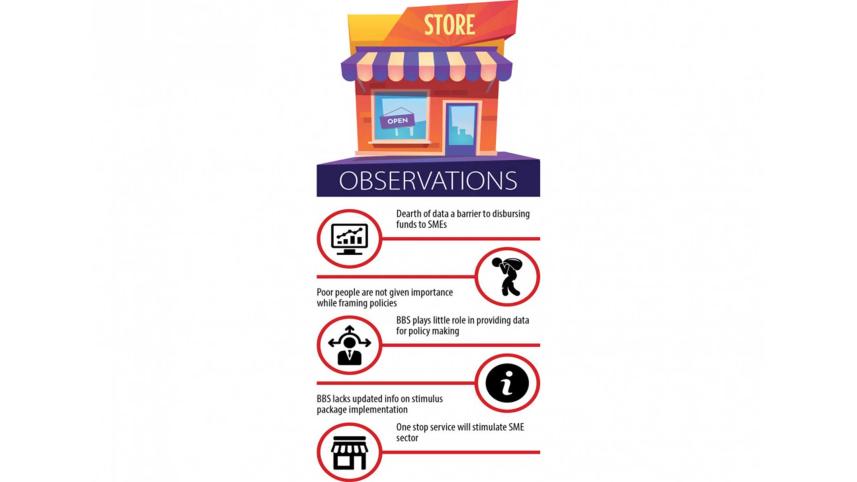Govt’s poor policy for SMEs must change

A study by the Centre for Policy Dialogue (CPD) has confirmed what we have repeatedly written in this column—that government policies have not adequately helped small and medium enterprises (SMEs) overcome the challenges brought on by the Covid-19 pandemic. Whereas large businesses have received significant and timely financial support from the government, during the entire pandemic period, government support to SMEs has been disappointingly slow and inadequate.
While concentrating on the challenges endured by banks in disbursing stimulus packages, the government completely forgot to address the challenges SMEs face when borrowing from banks. For instance, the amount of documentation that has been demanded from the SMEs to borrow from banks is completely unreasonable, given the size of these enterprises. This is just one example of how poorly the government support programmes for SMEs have been formulated. A lack of data by the government in regards to the SMEs—particularly by the Bangladesh Bureau of Statistics (BBS)—has been a major cause for such poor policy formulations. For example, there is currently no official data on the number of SMEs operating in Bangladesh. The last time such data was collected was back in 2013, when there were around 7.9 million SMEs.
It is estimated that SMEs and cottage and micro-enterprises generate around 90 percent of all private sector jobs in Bangladesh. The fact that government policy has performed so poorly at helping these enterprises during the pandemic explains why so many jobs have been lost in the formal sector in the last two years. Experts around the world agree that SMEs are the backbone of any economy. Yet, the lack of focus in getting most SMEs back on their feet has been a real setback for our economy.
For our economy to quickly recover, the government has to provide greater support to help the SMEs bounce back. In that regard, collecting data on SMEs for better targeted support is the most essential first step. Experts have repeatedly said that the government should involve NGOs and microfinance institutions to disburse loans to SMEs at low interest rates. It should also incentivise banks to lend to SMEs—which is usually more work for banks, as they prefer to approve one big loan to one big enterprise, than go through the hassle of approving hundreds of small loans to many small enterprises—through special schemes. The government should also consider setting up a specialised bank to address the needs of the SMEs.
In terms of policy interventions, the government has many options. But time is quickly running out, as many of these enterprises are desperately struggling to survive.



 For all latest news, follow The Daily Star's Google News channel.
For all latest news, follow The Daily Star's Google News channel.
Comments